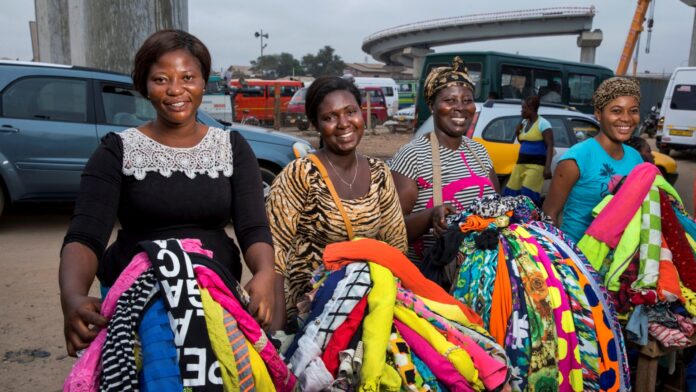A recent study by Katsekpor, et al., (2024) titled “Economic empowerment among female shea actors: the case of Savelugu District, Ghana” published in Cogent Social Sciences, shows that female shea actors encounter challenges such as inaccessibility to land, finance, markets, and inadequate storage facilities, impacting their operations.
“
There is a significant disparities in economic empowerment among female shea actors in Ghana’s Savelugu District– Katsekpor, et al., 2024
The study explores the economic empowerment of women engaged in the shea industry within Ghana’s Savelugu District. The study delves into the degree of economic empowerment experienced by these women and identifies various factors that impede their progress in this regard. Employing a convergent mixed-methods approach, the research collected data from 384 female shea actors, encompassing producers, collectors, and marketers, alongside insights from 12 experienced older women within the industry. Noteworthy findings indicate notable disparities in economic empowerment across different roles within the shea value chain. Challenges such as limited access to land, financial resources, and inadequate storage facilities were identified as significant barriers to empowerment. In response to these findings, the study advocates for the formation of groups to facilitate improved access to loans and to enable better control over product pricing. Additionally, it calls upon development agents to take proactive measures to enhance women’s access to land, finance, and storage facilities, thereby fostering a more conducive environment for their economic empowerment within the shea industry.
How the Study was Conducted
The authors utilized a convergent mixed-methods approach to gather both quantitative and qualitative data. Data were collected from 384 female shea actors (producers, collectors, marketers) and 12 experienced older women in the industry, totaling 396 participants. Qualitative data underwent thematic analysis, while quantitative data were analyzed using the non-parametric Kruskal-Wallis test to compare levels of economic empowerment among the three groups of shea actors. The study found significant differences in economic empowerment levels among the groups, with collectors, marketers, and producers showing varied mean ranks, indicating that economic empowerment varies among the shea actors.
What the Authors Found
The authors found significant differences in economic empowerment among the three groups of female shea actors—producers, collectors, and marketers—in the Savelugu District of Ghana. Collectors had the highest economic empowerment with a mean rank of 236.60, followed by producers at 205.31, and marketers at 131.24. The authors also found that female shea actors encounter challenges such as inaccessibility to land, finance, markets, and inadequate storage facilities, impacting their operations.
Why is this Important
Policy Implications: Understanding the economic empowerment levels of female shea actors helps policymakers design targeted interventions. By addressing specific challenges faced by these actors, such as inaccessibility to land, finance, and markets, policies can be tailored to enhance their economic well-being.
Gender Equity: Focusing on female shea actors acknowledges the gender disparities in economic opportunities. Empowering women in the shea industry contributes to overall gender equity and economic development.
Sustainable Livelihoods: Shea production is a significant livelihood activity in Ghana. Enhancing the economic empowerment of shea actors ensures sustainable livelihoods for them and their communities.
Industry Growth: A better understanding of economic empowerment can lead to improved practices, increased productivity, and growth in the shea industry. This benefits not only the actors but also the entire value chain.
What the Authors Recommend
- The authors suggest that shea actors should form collective groups. These groups can help increase access to loans, enhance bargaining power, and provide mutual support.
- To address financial challenges, the study suggests improving access to microfinance institutions. This would allow shea actors to invest in their businesses and improve their economic well-being.
- The authors propose that shea actors should have more control over prices. This can be achieved through collective bargaining and market information sharing.
- Inadequate storage facilities hinder the shea actors’ operations. The study recommends investing in better storage infrastructure to prevent spoilage and ensure product quality.
In conclusion, the study sheds light on the multifaceted challenges faced by female shea actors in Ghana’s Savelugu District, highlighting disparities in economic empowerment across different roles within the industry. By identifying these obstacles and proposing targeted solutions, such as forming collective groups, improving access to finance, and enhancing market control, the research underscores the importance of tailored interventions to foster gender equity, sustainable livelihoods, and industry growth. Addressing these issues not only benefits the shea actors themselves but also contributes to the overall development of the shea value chain and the communities it supports.
















 The African Research (AR) Index is a comprehensive scholarly directory and database focused explicitly on journal publishers that publish and disseminate African research.
The African Research (AR) Index is a comprehensive scholarly directory and database focused explicitly on journal publishers that publish and disseminate African research.

